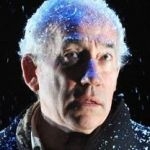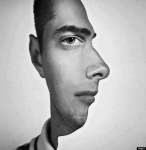Post
by Sheffey » Thu Aug 29, 2013 7:25 am
The remarkable scientific achievements of Isaac Newton (1642-1727) were neatly summarized in poet Alexander Pope's famous couplet:
Nature and Nature's laws lay hid in night
God said: "Let Newton be!" and all was light.
One of the pioneers of this new understanding of laws of nature was the French philosopher and scientist Rene Descartes (1596-1650), who wrote that "God alone is the author of all the motions in the world."
Robert Boyle, the father of modern chemistry and author of the eponymous law, observed that God's creation operates according to fixed laws "which He alone at first Establish'd." God's authorship of the laws of nature guaranteed their universality and unchanging nature. Descartes thus argued that because these laws had their source in an eternal and unchanging God, the laws of nature must themselves be eternal and unchanging.
Descartes also set out a law of the conservation of motion, again arguing for it on the basis of God's immutability. This idea that nature was governed by constant and immutable principles was an important precondition for experimental science.
The mathematician Isaac Barrow, who was Isaac Newton's predecessor in the famous Lucasian Chair of Mathematics at Cambridge, suggested that the only reason for having confidence that repeated experiments will yield general principles that hold true is because we can be assured that the laws of nature that God has instituted are constant. We have no reason to believe, he wrote, "that Nature is inconstant," for that would imply that "the great Author of the universe is unlike himself."
One of the perennial questions in the philosophy of mathematics concerns the status of mathematical truths: Are they human constructions, or are they eternal truths that are embedded in reality? Plato had held the first position, Aristotle had adopted the second, and it was Aristotle's view that tended to prevail throughout the Middle Ages.
If mathematics was primarily a product of the human mind, it could be argued that mathematics did not necessarily provide true a description of reality. It might be allowed, however, that mathematical models, although not ultimately true, nonetheless provided the basis for accurate predictions. Hence, mathematical astronomy, while regarded as falling short of offering a true account of the nature of heavenly bodies and the causes of their motions, was regarded as useful because made it possible to predict their positions. Mathematical models were thus thought of as useful fictions.
It was a difference of opinion on this question that led to Galileo's confrontation with the Inquisition. Galileo had wanted to insist that the sun-centred Copernican model system was more than an helpful mathematical device - it was an accurate physical description. Thus, not only did Galileo champion a new astronomical model, he also held to a new model of astronomy. The Catholic Church, for its part, supported the prevailing view. With the benefit of hindsight, we might judge its decision to have been unwise, but it was consistent with the scientific consensus of the time.
As was the case for laws of nature, the idea that mathematical relations were real had a theological justification. Individuals such as Galileo, Johannes Kepler, Rene Descartes and Isaac Newton were convinced that mathematical truths were not the products of human minds, but of the divine mind. God was the source of mathematical relations that were evident in the new laws of the universe. Like the Bible, the "book of nature" had also been written by God and, as Galileo was to insist, this book was "written in the language of mathematics."
Other scientists shared this view. Johannes Kepler, who discovered the laws of planetary motion, argued that God had used mathematical archetypes in his creation of the cosmos. Because of this, he wrote, the old Aristotelian prejudice against the mathematization of nature was to be rejected:
"the reason why the mathematicals are the cause of natural things (a theory which Aristotle carped at in so many places) is that God the Creator had Mathematicals with him as archetypes from eternity in their simplest divine state of abstraction."
Descartes even claimed that God had created the laws of logic and mathematics, maintaining that the equation 2 + 2 = 4 was true only because God had so willed it. In support of the idea that God was a mathematician, Descartes quoted the biblical verse: "thou hast ordered all things in measure and number and weight" (Wisdom of Solomon 11:20). Newton subsequently described the cosmos as inhabited by an "infinite and omnipresent spirit' in which matter was moved by 'mathematical laws."
Identifying God as the author of mathematics was thus a crucial step in asserting the reality of mathematical relations, and it was this development which enabled the subsequent application of mathematics to the subject matter of physics. Combined with the idea of a divine legislator, this insight produced the modern view that nature is governed by mathematical laws.
In each of these seventeenth-century developments - the emergence of natural laws, the mathematization of nature, the new mechanistic and atomic understanding of matter - God was imagined to be more intimately involved in nature than he had been in the medieval world picture. Indeed, this was the explicit intention of some of the principal agents of the scientific revolution, who argued that their new views of nature were more genuinely Christian than the supposedly "pagan" science of Aristotle.
Francis Bacon and his successors in the Royal Society, for example, clearly saw themselves as attempting to regain the dominion over nature which Adam had forfeited as a consequence of his disobedience. As Bacon expressed it:
"For man by the fall fell at the same time from this state of innocency and from his dominion over creation. Both of these losses however can even in this life be in some part repaired; the former by religion and faith, the latter by arts and sciences."
Scientific activity thus came to be regarded as an integral part of a redemptive process. This more active engagement with the natural world was still pursued from theological motives, but clearly these were quite different from those of medieval allegorists
Religious considerations provided vital sanctions for the pursuit of scientific knowledge and, arguably, it is these that account for the positive attitudes to science which have led to the high status of science in the modern West.
This is not to deny that there have been those in the past who have opposed certain scientific views on religious grounds. This has been especially the case since the advent of Darwinianism, which met with a mixed reception in religious circles. It is often forgotten, however, that Darwinism met with a mixed reaction in scientific circles, too.
Those who have magnified more recent controversies about the relations of science and religion, and who have projected them back into historical time, simply perpetuate a historical myth. The myth of a perennial conflict between science and religion is one to which no historian of science would subscribe.quote
Sheffey


















